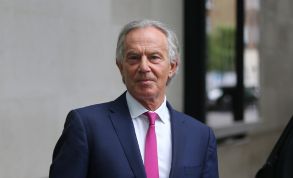News / Blair backs multi-year budgets and new operating model for ICSs
A report this week from the Tony Blair Institute for Global Change – Fit for the future: a modern and sustainable NHS – said the NHS needed to transform if it is to survive. While it backed the new structure of integrated care systems (ICSs), it called for them to be given ‘real freedom’ along with transparency of outcomes. ‘They need multi-year budgets to be able to keep efficiency savings for redeployment in better services, to use private providers freely, and to allow patient choice across GP practices and hospitals in their region’.
The report backs much greater use of technology and proposes ‘radical but practical’ reform in six areas:
- putting patients in control of their own health
- creating new access routes for services and providers
- harnessing the power of genomics
- creating the conditions for self-improving health and care systems
- investing in new and more efficient infrastructure
- energising and modernising the workforce
ICSs and integrated care boards should be given at least two Parliaments to settle in and develop before any further structural changes are considered as delivery models, the report said. But they would need a new operating model. ‘At present, their governance is unwieldy, accountability is confused, and incentives are misaligned,’ the report said. ‘Unless this is addressed as a priority, these new structures will be declared a failure before they have a chance to deliver.’
The report also called for financial incentives to drive innovation and focus on outcomes not inputs. It said that ICSs should be provided with multi-year budgets, adjusted for the size, risks and needs of their population. These budgets could initially be provided over five years, but increase to a decade as ICSs demonstrate they can operate efficiently and deliver improvements in population health. The report added that this would help to ‘decouple healthcare from the five-year political cycle’.
The multi-year funding should be linked to clear expectations on service delivery – initially based on activity targets, but moving towards outcome targets. Successful ICSs would be given the ‘opportunity to share savings with government, keeping a portion for reinvestment’.
The report also backed a ‘reformed choice model’, with an end to primary care patient lists and hospital choice restricted to within an ICS. It also called for some services to be contestable, despite the NHS moving away from internal markets in recent years. These might include areas such as dermatology and physiotherapy.
Related content
This webinar series offers colleagues of ICS organisations the opportunity to discuss common priorities, challenges, and successes within their field.
We are excited to bring you a fun packed Eastern Branch Conference in 2025 over three days.